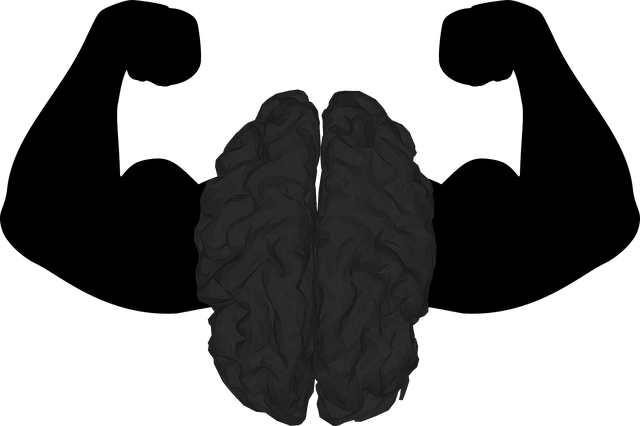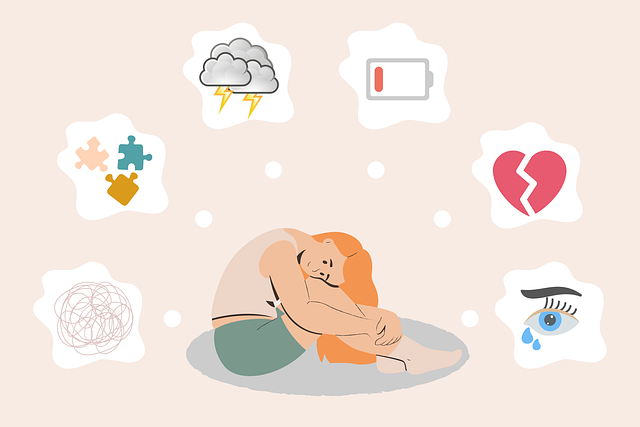Lafayette Women's Issues Therapy (LWIT) offers a holistic, tailored approach to women's mental wellness, addressing gender-specific challenges in a safe space. Their program incorporates techniques like Social Skills Training and Self-Awareness Exercises to boost resilience and self-esteem. Program evaluation is vital for assessing LWIT's effectiveness, identifying strengths and weaknesses, and guiding improvements based on client feedback. Using mixed-methods research, they gain insights into clients' perceptions and behaviors, ensuring data-driven decisions enhance services like Stress Management Workshops and Communication Strategies sessions. Regular evaluation ensures LWIT stays relevant and effective in promoting positive mental health outcomes through dynamic self-care routine development.
Mental wellness program evaluation is a vital aspect of delivering effective care, and Lafayette Women’s Issues Therapy (LWIT) serves as a prime example. This holistic approach aims to address the unique challenges faced by women, offering a comprehensive suite of services. Understanding LWIT’s evaluation methods is crucial for optimizing mental health care. The article explores defining program evaluation, the importance of its role, and how LWIT employs diverse techniques to assess impact and drive continuous improvement, ensuring enhanced support for clients.
- Understanding Lafayette Women's Issues Therapy (LWIT): A Holistic Approach
- Defining Program Evaluation: Its Purpose and Importance in Mental Health Care
- Choosing the Right Evaluation Methods for LWIT
- Assessing Impact: Quantitative and Qualitative Techniques
- Continuous Improvement: Using Evaluation Findings to Enhance the Program
Understanding Lafayette Women's Issues Therapy (LWIT): A Holistic Approach

Lafayette Women’s Issues Therapy (LWIT) offers a unique and holistic approach to mental wellness, addressing a wide range of issues specific to women’s experiences. This therapeutic method recognizes that women often face distinct challenges related to gender roles, societal expectations, and personal relationships. By providing a safe and supportive environment, LWIT empowers women to explore and navigate these complex matters.
The program incorporates various techniques such as Social Skills Training, which helps build healthy connections and communication skills, alongside Self-Awareness Exercises designed to foster introspection and understanding of one’s thoughts and emotions. Additionally, focusing on Self-Esteem Improvement is a cornerstone of LWIT, enabling participants to cultivate resilience and a positive self-image. Through these comprehensive methods, Lafayette Women’s Issues Therapy aims to holistically enhance the mental wellness of its clients.
Defining Program Evaluation: Its Purpose and Importance in Mental Health Care

Program evaluation is a crucial process in mental health care that involves systematically assessing and analyzing the effectiveness, impact, and outcomes of interventions or programs designed to address various women’s issues, such as those offered at Lafayette Women’s Issues Therapy. Its primary purpose is to ensure that services are delivering the intended benefits and making a positive difference in individuals’ lives. By evaluating these programs, mental health professionals can gain valuable insights into what works best, identify areas for improvement, and make data-driven decisions to enhance service delivery.
This method is essential for several reasons. Firstly, it helps measure the success of interventions in improving clients’ well-being, including their ability to manage stress, build resilience, and regulate emotions effectively. Secondly, evaluation allows for continuous quality improvement by providing feedback on program strengths and weaknesses. This information can guide the refinement of existing programs or inform the development of new initiatives tailored to the unique needs of women seeking therapy. Effective program evaluation contributes to a more evidence-based approach in mental health care, ultimately enhancing the overall effectiveness of services provided at Lafayette Women’s Issues Therapy and similar institutions.
Choosing the Right Evaluation Methods for LWIT

Evaluating the effectiveness of a mental wellness program is an essential aspect of ensuring its success and impact on clients’ lives. When tailored to meet the unique needs of Lafayette Women’s Issues Therapy (LWIT), the right evaluation methods can provide valuable insights into the program’s strengths, weaknesses, and areas for improvement. The selection process should consider the specific goals and objectives of LWIT, with a focus on measuring outcomes related to burnout prevention, stress reduction methods, and crisis intervention guidance.
One effective approach is to employ mixed-methods research, combining quantitative data collection (e.g., surveys) with qualitative techniques (e.g., client interviews or focus groups). This combination allows for a comprehensive understanding of clients’ perceptions, behaviors, and overall well-being. By utilizing these evaluation methods, LWIT can gain valuable feedback, identify trends, and make data-driven decisions to enhance its services, ultimately improving the lives of those seeking support.
Assessing Impact: Quantitative and Qualitative Techniques

Evaluating the impact of mental wellness programs is a multifaceted process that employs both quantitative and qualitative techniques. Quantitative methods involve statistical analysis of data collected through surveys, tests, and metrics tracking changes in symptoms or behavior. This approach helps measure the reach and effectiveness of programs like those offered at Lafayette Women’s Issues Therapy, providing concrete data on improvements in key areas such as anxiety relief.
Qualitative techniques, on the other hand, delve deeper into participants’ experiences and perceptions. Interviews, focus groups, and open-ended survey questions allow individuals to share their stories and offer insights into how mental health education programs design can be enhanced or tailored to better meet diverse needs. This human-centered approach complements quantitative findings, shedding light on the personal transformations and Mental Health Awareness that often lie beyond measurable outcomes.
Continuous Improvement: Using Evaluation Findings to Enhance the Program

Effective mental wellness program evaluation is not a one-time task but an ongoing process that facilitates continuous improvement. At Lafayette Women’s Issues Therapy, we believe in leveraging evaluation findings to enhance our services and tailor them to the evolving needs of our clients. By regularly assessing the impact of our programs, we can identify areas for improvement and make data-driven adjustments. This iterative approach ensures that our initiatives, such as Stress Management Workshops Organization and Communication Strategies sessions, remain relevant and effective in fostering positive mental health outcomes.
Through evaluation, we also gain insights into individual client journeys and the effectiveness of different self-care routine development techniques. These findings enable us to customize our support, ensuring each client receives personalized guidance that aligns with their unique circumstances. By embracing continuous improvement, Lafayette Women’s Issues Therapy is committed to providing dynamic and impactful mental wellness solutions for all who seek them.
The evaluation of mental wellness programs, such as Lafayette Women’s Issues Therapy (LWIT), is a vital step in ensuring their effectiveness and impact. By employing a combination of quantitative and qualitative techniques, LWIT can accurately assess its reach and benefits to participants. This comprehensive approach, as discussed in the article, allows for continuous improvement, tailoring the program to better address the unique needs of women. Through strategic evaluation methods, LWIT has the potential to revolutionize mental health care, fostering a holistic environment that enhances well-being and empowers women.














